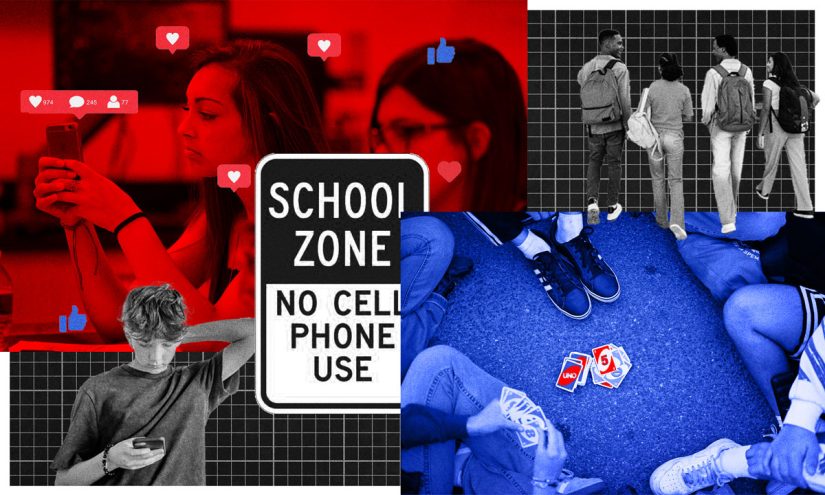New York City schools have had a long history of phone restriction policies, with an outright ban in the early 2000s that was reversed about 10 years later. Individual schools, like the ones where Corletta and Leston teach, have had the freedom to implement their own restrictions.
That will change again in the new academic year as all schools in New York state will implement a bell-to-bell ban — one of the strictest among dozens of other states that have passed similar legislation — barring students from access to personal devices that can connect to the internet for the entire school day. Schools will be required to provide storage for the devices.
But with such new policies, many being implemented for the first time this school year or in effect for less than two years, no one knows what the perfect model looks like.
Researchers are moving cautiously as they grapple with uncertainty about the effectiveness of in-school phone bans on mental health. Data yields mixed results — and there’s growing a sentiment that more has to be done outside of schools to get kids off their phones and back into the world.
A recent Pew Research survey found that nearly three quarters of Americans support restrictive phone use in schools, up six percentage points since last year — but many are also unsure how far the bans should go. About 44% of respondents supported all day bans, with others split on whether students should have access to their phones between classes or at lunch.



you are the sort of uncritical, single-minded person who is going to help turn us all into digital serfs on a latifundium that can never be overthrown and permanently enriches a class of technolibertarian freaks that want to remake society in their image. the fact of the matter is smart phones as a whole are arguably the most successful corporate mechanism to privatize social life yet devised, and any “liberation” you think can be derived from them by any class of people is illusory without overthrowing capitalism. the phone companies and the apps they host have successfully positioned themselves as middlemen with free ability to hoover up an endless amount of “consensually given” data that can then be used to quantify said social life, commodify our personhood, and preemptively snuff out any real competition to the existing economic oligopoly. if you were to structure a system so incapable of being challenged that we’re doomed to live under it forever, this would be a pretty good way to do that.
children, needless to say, are especially not liberated by this state of affairs–or by the future that people like Elon Musk or Mark Zuckerberg want to build and which you seem to want to enable–and giving them free rein online in this absolutist way because you want to “emancipate them” is, ironically, often the best way to ensure capitalists exploit their labor and data in the current system. Roblox, for example, has made a fucktillion dollars off of your subtextually proposed strategy of just “letting kids be kids”–those children have essentially provided the company with a free, uncompensated, popular series of games for them to exploit the entire value of. totally coincidentally, they don’t even spend any of that money they’ve made protecting children from the actual social harms children could be exposed to on their platform, so Roblox is awash in grooming and cyberbullying and hate speech and sometimes even graphic violence that is never dealt with.
the “corpo slop apps” have like 95% market penetration among people under-18 and as such are the almost-exclusive mediums through which they interface with digital spaces (because they are explicitly engineered to make us envious and addicted, and to make us all into people who live and die for the fix for attention that such websites give us). let’s not pretend this is a serious “conflation” when all available evidence is this is the overwhelming use-case of mobile devices.